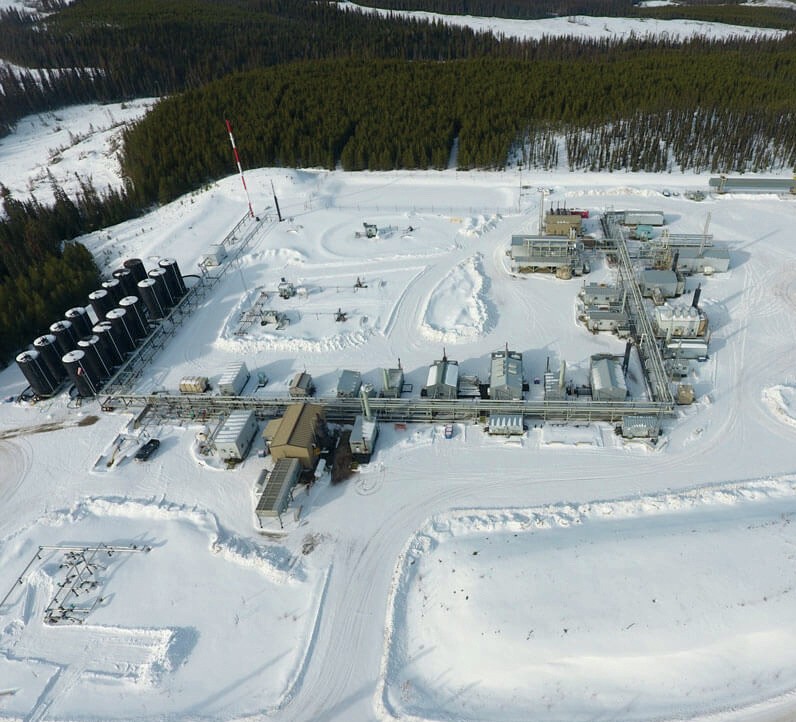Sulphur 405 Mar-Apr 2023

31 March 2023
Sulphur Industry News Roundup
UNITED KINGDOM
CRU to enter formal partnership with UniverSUL consulting
CRU, a leader in sulphur industry market analysis, price assessments, consultancy and events, and Abu Dhabi-based UniverSUL Consulting LLC, dedicated to providing unbiased technical expertise in sour hydrocarbon production and sulphur recovery, have announced a formal partnership aimed at enhancing the value of industry events for the sulphur industry.
Both companies have long histories in the sulphur industry and together recognise the importance of more meaningfully uniting the sulphur community in today’s changing times, as the energy transition reduces sulphur supply while population growth continues to drive demand for this vital resource. These phenomena, and other future developments, will necessitate new discussions around the changing global supply/demand balance and corresponding continued requirements for effective knowledge-sharing, lessons learned capture, and discussions/ debates around best operating practices and innovative technological developments.
In this partnership, CRU will continue to deliver market-leading events, such as the Sulphur + Sulphuric Acid Conference, the world’s longest running sulphur conference, which takes place annually and alternates between North America and Europe, while UniverSUL’s Angie Slavens will serve in a technical principal role, responsible for developing conference technical themes and for facilitating the growth/nurture of the technical community, based on the most relevant industry conversations of the time. The two companies will continue collaborating on their joint venture event, the Middle East Sulphur Conference (MEScon), established in 2022 in the Middle East, the new world focal point for sulphur supply, which will be further strengthened by their broader cooperation.
“The pairing of CRU’s deep commercial knowledge, event production expertise and industry connections with UniverSUL’s technical industry knowledge and relationships, across all of CRU’s sulphur events, creates a powerful partnership which will enhance the value of sulphur gatherings for participants around the world,” said Nicola Coslett, CEO Events, CRU.
“After working with CRU in an informal capacity for 20 years, I am excited to formalise this partnership, which is intended to provide greater value for contributors along the entire sulphur value chain. CRU has long-provided events highlighting the importance of sulphur and connecting key industry contributors; together, UniverSUL and CRU hope to create an environment that is even more conducive to initiating networking opportunities, providing big-picture perspectives, and encouraging community stewardship, for the betterment of the sulphur industry, for years to come” said Angie Slavens, Managing Director, UniverSUL Consulting LLC.
SOUTH AFRICA
Joint venture for sustainable aviation fuel
Topsoe has signed a memorandum of understanding (MoU) with Sasol to establish a joint venture that will produce sustainable aviation fuel (SAF). The venture will develop, build, own, and operate ventures producing SAF based on Sasol’s Fischer-Tropsch technology and Topsoe’s SAF technologies. Topsoe says that it is also part of its ongoing commitment to help achieve net-zero emissions and accelerate the decarbonisation of hard-to-abate sectors.
At this early stage, the companies say that they have not explored details such as which feedstock to use, precise timeline or production capacity. The next step will be to work towards establishing the company, including business plan development, setting up the JV structure and organisation, and finalising the JV agreement.
Roeland Baan, Chief Executive Officer at Topsoe, said: “We are very excited to announce this MoU, as it underlines our ambition to help decarbonise some of the most critical sectors in the world. If we are to reach net zero on a global scale by 2050 in order to fight climate change, all solutions need to be put into play. Creating a low carbon aviation sector is an important piece of the puzzle, and we’re excited to extend our partnership with Sasol to help speed up decarbonisation. Combined, we have the technologies, capabilities and willingness to take the lead.”
KUWAIT
Al Zour to ramp up oil product exports in 2023
Kuwait is set to ramp up refined oil product exports from its new Al Zour refinery in the second half of 2023 to ease shortfalls in Europe resulting from the embargo on Russian products, as well as to serve new demand in Asia and Africa. The 615,000 bbl/d refinery has been much delayed but started up its first 205,000 bbl/d crude distillation unit in September 2022, and is now expected to start up the remaining two CDUs in March/April 2023 and August 2023 respectively in order to reach full capacity.
Kuwait’s exports of refined products reached an all-time high of 17 million barrels in January, up 30% year on year, as Al Zour shipped more fuel oil to the Singapore Strait, diesel and jet fuel to Europe, and naphtha to China, South Korea and Japan. Annual diesel exports could reach up to 7 million tonnes (143,000 bbl/d) from Al Zour, and jet fuel 4.5 million t/a (97,000 bbl/d) once the refinery reaches full capacity. Most of the diesel supplies will be directed towards Europe, which has a shortfall of around 3 million tonnes per month (745,000 bbl/d) of Russian diesel after the EU embargo.
KAZAKHSTAN
Gas processing plant to start-up in 2025
Work has recommenced on a new 1 bill ion cubic metre per year gas processing plant in the Atyrau region, 12 km northeast of the existing onshore Bolashak oil and gas treatment complex, to accommodate associated gas production from giant offshore Kashagan oil field. The plant was originally backed by private company GPC Investment LLC, and work began in September 2021, but it has now been transferred to the responsibility of state-owned QazaqGaz, formerly KazTransGas. QazaqGaz then conducted financial, technical, and legal audits that revealed critical engineering errors in the design of the project, pushing the expected completion date back to 2025.
Once complete, it will have the capacity to process 1 bcm/year of associated sour gas from the Kashagan field to produce 815 million m3 /year of commercial gas, 119,000 t/a of LPG, 35,000 t/a of condensate, and 210,000 t/a of sulphur. It will allow oil production from Kashagan field to increase by 450,000 bbl/d, as associated gas production at the site to date has inhibited higher crude production rates.
QazaqGaz has agreed with Kashagan project operator the North Caspian Operating Company (NCOC) to increase gas processing capacity in three phases, of which this plant will be the first. Two further plants, each with a capacity of 2 bcm/ year of sour gas are now planned, to allow further increases in oil production. The Kazakh government says that it intends to adopt a detailed roadmap for the new gas plants in the near future.
UNITED STATES
Analyser for H2S breakthroughs in renewable natural gas production
Renewable natural gas (RNG) is a pipeline quality gas interchangeable with conventional natural gas. Historically methane produced from locations such as landfills, livestock operations, or wastewater treatment plants was lost to the atmosphere. However, as regulators update emission rules and implement renewable fuel standards, RNG has become a rapidly growing segment of next generation renewable fuels. In fact, a study published by the National Association of Clean Water Agencies suggests that potentially 12% of electrical production in the United States could be generated from RNG sourced from wastewater treatment plants.
However, before gas generated from renewable sources is released to pipelines, it first must be upgraded to meet the pipeline specifications. This typically involves removing components such as CO2 , H2 O, and H2S. Hydrogen sulphide is a particularly challenging component for operators to remove, but common processes like amine or selexol units are not economical given the scale for most RNG facilities. Instead, operators rely on packed columns which selectively remove H2S using sorbents. While these systems can reduce H2 S levels from several thousand parts per million down to approximately four parts per million, they need to be periodically changed as the sorbents become saturated.
Operators rely on process analysers to detect hydrogen sulphide breakthroughs and swap to a new column. However, most analysers on the market either lack the sensitivity to detect the hydrogen sulphide at the levels and pressures leaving the packed columns or require costly carrier gases that must be continuously replaced for the analyser to keep functioning.
To resolve this issue Applied Analytics has developed its new Zeta™ spectrometer, to be used in conjunction with the OMA-300 process analyser. When equipped with a Zeta™ spectrometer, the OMA-300 UV ZETA can measure low levels of H2S found at these facilities without the need for expensive reagents that need replacing. As an added benefit this system uses a solid-state design which does not contain moving parts that can fail or would otherwise require replacement.
DENMARK
Topsoe to license waste to biofuel process
Topsoe has signed a global licensing agreement for Steeper Energy’s Hydrofaction™ technology, used for converting biomass to renewable biocrude oil, enabling Topsoe to offer a complete waste-to-fuel solution via the production of advanced biofuels produced from waste biomass such as residues from forestry and agriculture. The end-products include Sustainable Aviation Fuel (SAF), marine biofuel, and renewable diesel from waste biomass. With this agreement, the parties are working towards the first commercial scale deployment of Hydrofaction technology.
Hydrofaction uses hydrothermal liquefaction (HTL), which applies supercritical water as a reaction medium for the conversion of biomass directly into a high-energy density renewable biocrude oil. Steeper’s process subjects wet biomass to heat and high pressure, with process conditions carefully chosen to promote reaction pathways that favour high yields of high-quality renewable oil. Hydrofaction can convert up to 85% of incoming biomass on an energy basis, making it one of the most effective conversion technologies available.
Peter Vang Christensen, Senior Vice President, Clean Fuels & Chemicals – Technology, Topsoe, said:
“We are excited to work with Steeper and to combine our technological capabilities. This will make it easier for refineries and project developers to access the technology they need for advanced biofuels. It will also allow them to access new renewable feedstocks while supporting decarbonisation of the transportation sector, not least aviation and shipping.”
CANADA
Midstream Solutions buys KANATA Energy

Calgary-based CSV Midstream Solutions Corp says that it has completed its acquisition of the KANATA Energy Group, including majority stakes in the Valhalla and Simonette sour gas gathering and processing plants near Grande Prairie, Alberta, in the heart of the Western Canadian Sedimentary Basin. CSV already owns three natural gas assets in the Grande Prairie region: the Resthaven Gas Processing facility 80 km northeast of Grande Cache; the South Pipestone Compressor Station and Liquids Processing Facility 40 km southwest of Grande Prairie; and the Karr Gas Plant 60 km south of Grande Prairie. A proposed sour gas processing project called Albright is also in the works by the Company and will be located northwest of Grande Prairie in the Valhalla area. The KANATA assets add over 150 million cfd day net processing capacity to CSV, for a total capacity of 470 cfd.
CSV’s President, Rick Staples said; “Today’s announcement reinforces the continued application of CSV’s disciplined growth strategy. The Valhalla and Simonette gas plants consolidate our presence in the prolific Montney, Charlie Lake, and Spirit River plays in northwestern Alberta, allowing CSV to provide reliable midstream services to our new partners and an increasing array of producers in this active corridor.”




